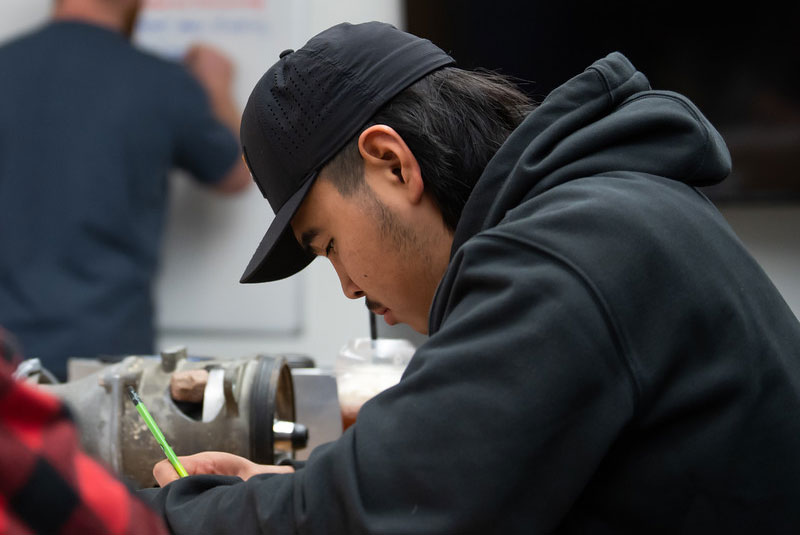Course Spotlight: Cultural Anthropology – Exploring What Makes Us Human
by V. Heisser |
This summer, students in Dr. Stan Herman’s Cultural Anthropology course are exploring
the hidden frameworks that shape human life. Dr. Herman brings enthusiasm and depth
to the class, encouraging students to challenge their assumptions about culture.
“Culture is my jam,” he says. “It’s not just arts and crafts. It’s belief systems,
power structures, daily practices—it’s how people live, how they relate, and how they
make sense of the world.”
One particular aspect of culture he finds fascinating is food. “One of my old professors
said there is so much more involved in food than simply eating. It’s about families
and friendships, hierarchy and distribution. And it reflects systems of power. Even
enforces them.”
When helping students engage with unfamiliar practices, Dr. Herman emphasizes the
importance of immersion and empathy. “I try to approach cultural practices as internally
coherent—they hold meaning and utility for the people who engage with them. The first
step is to submerge yourself in the ‘native’s point of view.”
He challenges students to question their assumptions: “Only after understanding that
should we compare cultures, including ethical debates.”
Students are often surprised by what they discover in topics like religion and kinship.
“As a student, I was struck by the lack of universals in the anthropology of religion.
Concepts like the soul, self, or afterlife aren’t shared across all traditions. Anthropology
doesn’t even require deities for a belief system to be classified as a religion.”
This leads to fascinating questions. “How do you translate metaphors like ‘the lamb
of God’ for a people who’ve never encountered a lamb? Do you say ‘seal of God’ and
risk invoking the wrong meanings?”
The course draws on global and local examples, including Alaskan contexts. “When we
talk about food, we might compare subsistence hunting in Native communities with catered
corporate events in California. Both reflect values, organization, and worldview.”
Dr. Herman’s hope for his students is simple: “I hope they leave with a sense of curiosity.
The world becomes more interesting, more complex, and more beautiful when you understand
culture.”









